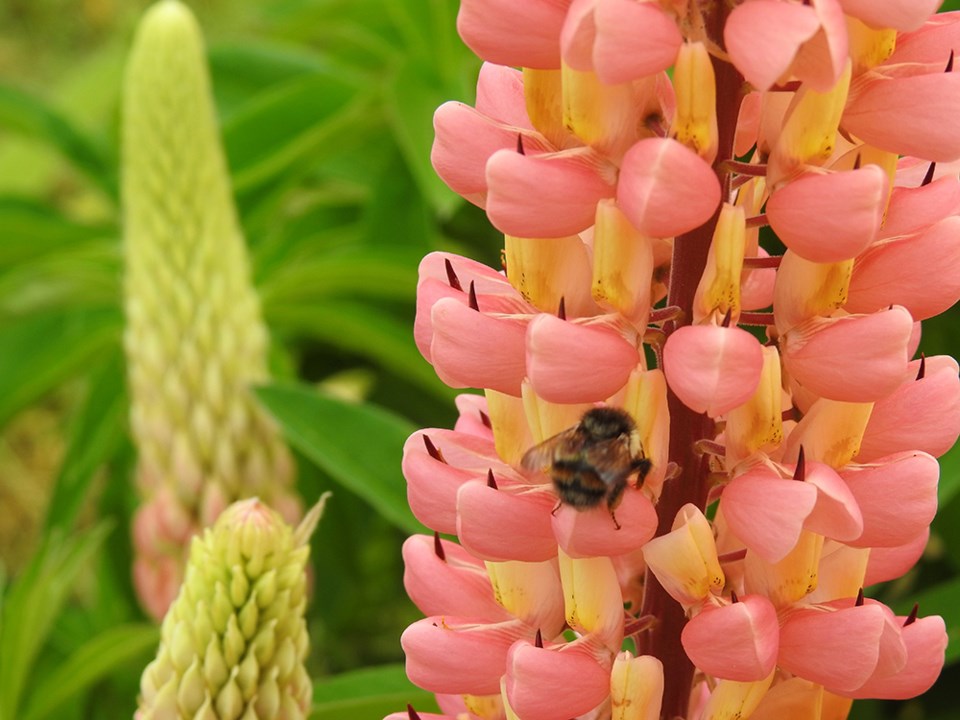Birds are chirping and looking for mates; bees are buzzing and looking for blossoms and dandelions.
In April people wonder what they can do for Earth Month, how they can contribute to a better, healthier environment. The best option is to act and support locally.
Make your dollars count by buying at the farmers’ market or directly from a farmer. Don’t use any pesticide on your lawn. Leave the dandelions for the bees as it’s their first food. There are many small ways that if we each did them it would have a massive impact on our surroundings.
Locally, Ray Lambert has been making mason bee houses and giving workshops on how to use them. He sells the houses and the bee cocoons. If you want to do one project to make a huge difference with minimal effort, putting up a mason bee house is your ticket.
It is a very easy way to help the bee population and pollination of flowers and trees. Mason bees pollinate up to 100 times more than honey bees. There is no upkeep except in the winter with taking out the cocoons and cleaning the house. To find out more, contact Ray at [email protected].
Another way to have an impact is to plant pollinators, even if it’s a small patch in your garden or boulevard. Bees need variety and the more flowers there are the healthier the bees are.
One of our board members tends to three pollinator patches in the community in partnership with the City of Powell River parks department. It takes commitment and time but it is well worth the effort and many people are dedicated to creating a blooming habitat in their own yards.
Organic seeds or plants and not hybrid selections are the best option. Springtime Nursery, Mother Nature and farmers’ markets have a wonderful selection. We have an abundance of healthy choices in our community
Malaspina Land Conservancy Society has also been making an impact for the last five years by handing out fir and cedar seedlings in the spring for people to plant on their property. All together we have now planted 10,000 trees and some of those are on the grounds of elementary schools and surrounding Brooks Secondary School.
Trees are natural carbon sequesters so they are the most important species to us as we also exchange oxygen. It’s crucial to plant trees wherever possible, protecting old growth and switching to a renewable model for logging that includes selective logging.
Suzanne Simard, UBC professor of forest ecology, is the author of Finding the Mother Tree. If you are looking to have an impact on policy in British Columbia, this is the book to read.
Malaspina Land Conservancy Society is always willing to meet landowners interested in preparing a conservation covenant to protect their property. Reach out to us with any questions at [email protected].
Happy planting!
Lesley Thorsell is a board member with Malaspina Land Conservancy Society. Find out more about the land conservancy movement through malaspinaland.ca.
Join the Peak's email list for the top headlines right in your inbox Monday to Friday.



